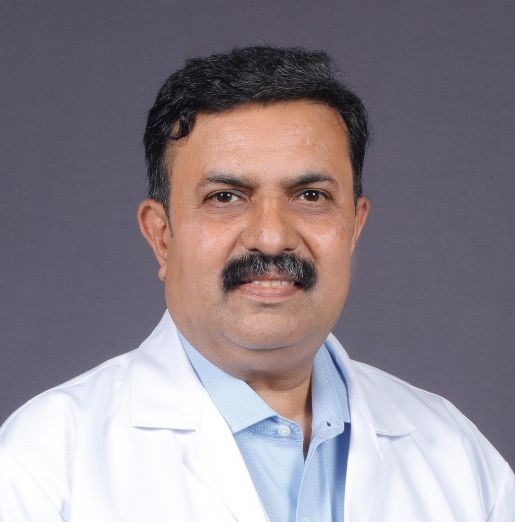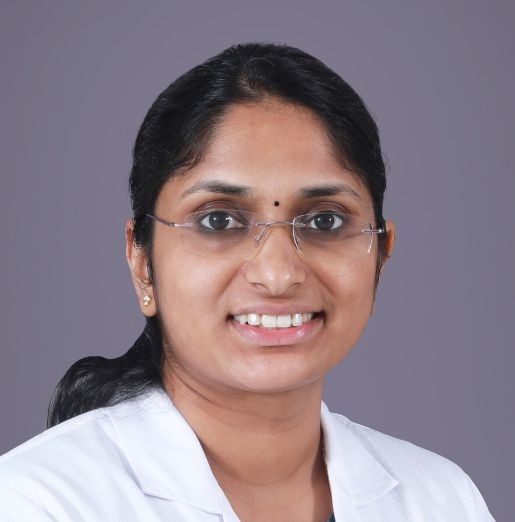The Nephrology Department at KIMS Hospitals in Mahadevapura aims to transform the way kidney disease is treated. They work to prevent, diagnose, and treat issues while focusing on providing personalised care. They also offer patients chances to join advanced research that could reshape kidney disease outcomes.
What Your Kidneys Do
Your kidneys do more than make urine. They perform many vital tasks to keep your body working, like:
- Managing blood pressure
- Strengthening bones
- Helping create red blood cells
- Balancing fluids and minerals in your body
- Clearing out drugs and harmful substances
Our skilled nephrologists, experts in kidney health, ensure you get top-notch care. As a renowned referral centre for kidney diseases worldwide, KIMS Hospitals in Mahadevapura often handles complex cases that other doctors send our way. Whether you are dealing with high blood pressure, a rare kidney condition, or a more common kidney issue, we provide advanced treatment tailored to your needs.
WHAT WE TREAT
1. Short-term and Long-term Kidney Problems
- Acute Kidney Injury (AKI): Kidneys function declines rapidly over hours to days. Usually seen in dehydration, blood loss, severe systemic infections or acute cardiac event.
- Chronic Kidney Disease (CKD): Kidney function gradually declines over time. Diabetes and Hypertension are leading causes of CKD in India.
- Kidney Failure: The most advanced phase of CKD when kidneys stop cleaning the blood. This set of patients need renal replacement therapy in the form of dialysis or Kidney transplantation.
2. Kidney Issues Caused by Other Health Problems or Conditions
- Diabetic Nephropathy: Diabetes over a long time harms the kidneys making them lose protein through urine and the kidney function starts to decline slowly.
- Hypertension: Chronic kidney disease and high blood pressure feed into each other, creating a harmful loop.
- Renal Artery Stenosis: The arteries that carry blood to the kidneys become narrow, which lowers kidney function and makes blood pressure hard to manage.
3. Issues with Kidney Structure and Function
- Glomerular Diseases: These are problems with the glomeruli, which are kidney filters. They often result in conditions like protein in urine or nephrotic syndrome.
- Tubulointerstitial Kidney Issues: These are diseases impacting the kidney's tubules and nearby tissues. They cause kidney function to decline.
- Genetic Kidney Problems: These are inherited disorders like polycystic kidney disease that damage kidney structure and function over time.
4. Kidney Stones and Blockages
- Kidney Stones: These are solid mineral buildups that develop in the kidneys. They are painful and can block the flow of urine.
- Kidney Blockage: Urinary tract obstruction happens when the normal flow of urine from the kidneys gets blocked. This can occur due to kidney stones, tumours, blood clots or congenital abnormalities.
5. Kidney Care in Children
- Paediatric Kidney Problems: Children can face various kidney issues such as birth-related defects, nephrotic syndrome, or problems in the urinary tract's structure.
6. Body Fluid and Acid-Base Problems
- Electrolyte and Acid-Base Issues: These are often seen with kidney troubles and can disrupt heartbeats, nerves, and overall body balance.
SCREENING SERVICES
- Conduct blood tests
- Perform a complete blood count (CBC) with differential
- Measure levels of BUN and serum creatinine
- Check sodium, potassium, chloride, glucose, calcium, phosphate, Uric acid and albumin content.
- Assess total protein and cholesterol levels.
- Urinalysis and sediment examination to understand the type of disease affecting the kidneys
- Measuring protein in urine as a sign of kidney trouble:
- Protein-to-creatinine ratio in urine
- Microalbumin-to-creatinine ratio in urine
- 24-hour urine protein estimation
- Perform kidney imaging such as renal ultrasound, kidney dopplers, CT scans or magnetic resonance angiography as indicated to look for kidney stones, blocks and urinary tract, size of kidney etc.
TREATMENT OPTIONS
- Dietary Advice: Nutritional advice to follow a diet for managing kidney-related conditions offered by a nutritionist with expertise in kidney diseases
- Medical management: Most of the kidney diseases can be efficiently managed with simple medicines combined with dietary changes, healthy lifestyle and regular follow up.
- Dialysis: This process removes the waste products from the blood when the kidneys fail to do this function. Our centre provides:
- Intermittent hemodialysis
- Continuous renal replacement procedures
- Continuous ambulatory peritoneal dialysis options and Automated Peritoneal dialysis
- Kidney Stone Removal Surgery: Our doctors perform open or minimally invasive surgery to remove kidney and urethral stones based on the stone characteristics and your health. Minimally invasive stone removal surgery options are:
- Ureteroscopy with Laser Lithotripsy
- Percutaneous Nephrolithotomy (PCNL)
- Nephrectomy: This process involves the removal of the diseased or damaged kidney. Doctors generally suggest kidney removal due to cancer or severe infection.
- Kidney Transplant: This surgery replaces a failed kidney with a healthy one from a donor. Donors can be living (from first degree relatives) or from deceased donors. Donor nephrectomy is done through keyhole surgery or Laparoscopy which helps in early recovery. Recipient surgery is done usually through open or Robotic technique. Recepient is given immunosuppressant medicines lifelong to prevent the body from rejecting the new kidney. Kidney transplantation offers a ray of hope for patients on dialysis. It gives freedom from dialysis and helps to lead a near normal, healthy life.





